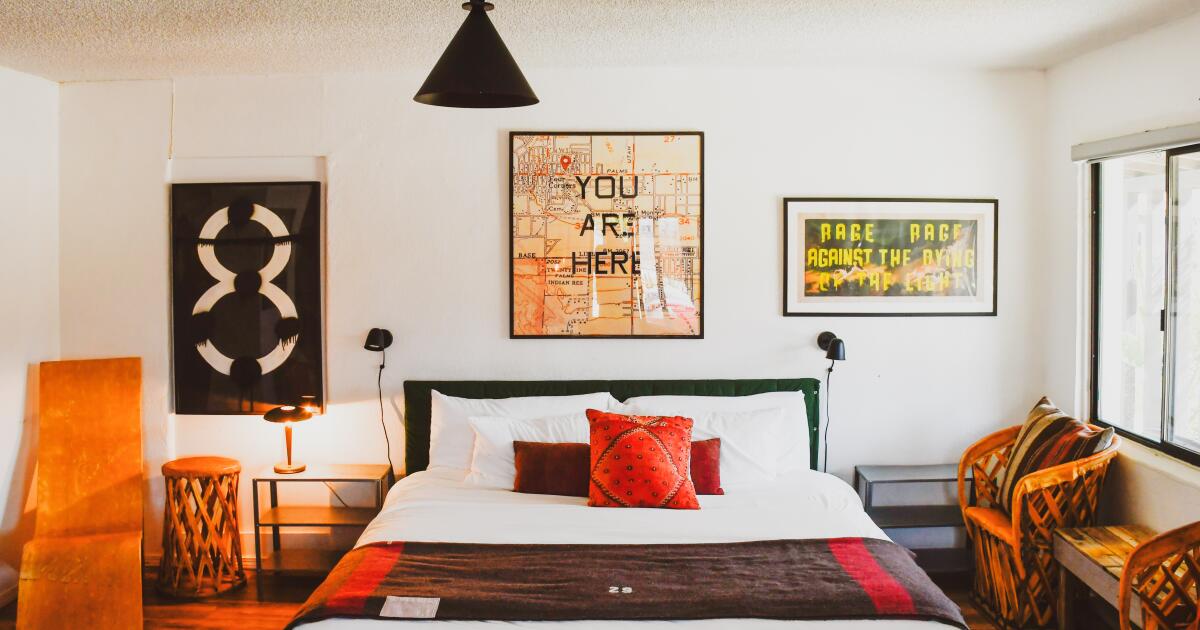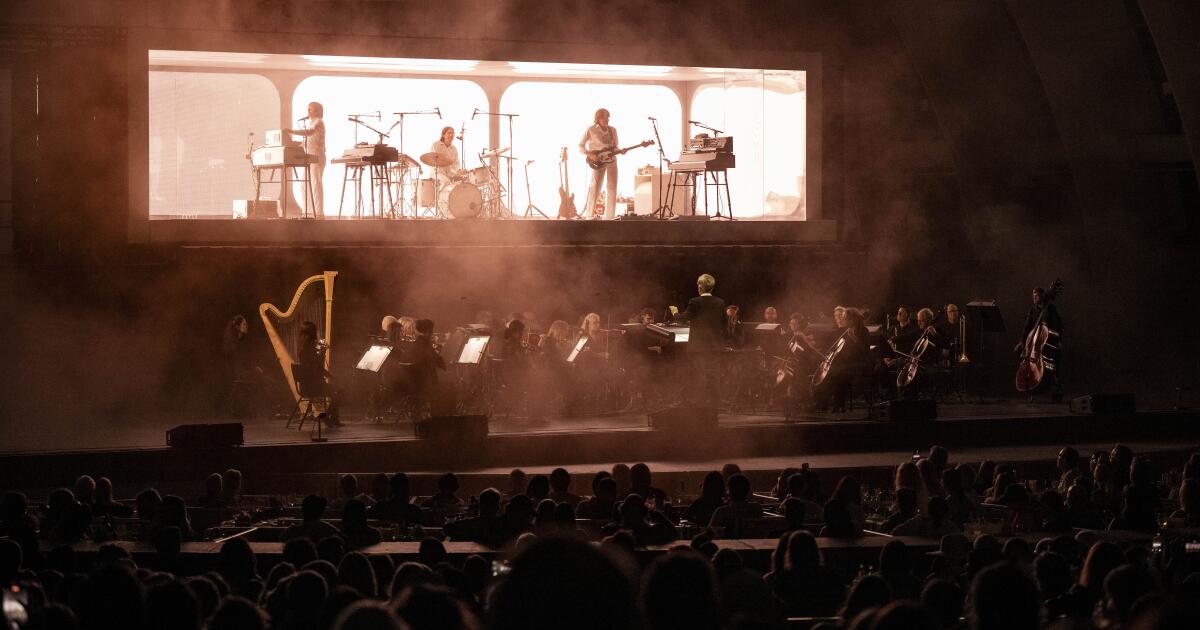There’s a particular niche of sophisticated, loungy music that thrived from the late ’90s into the mid-2000s. It grew out of ELO’s regal rock and Serge Gainsbourg’s loucheness, taking on bits of U.K. trip-hop, midcentury exotica, the Largo scene’s orchestral flourishes and Daft Punk’s talkboxes. I don’t quite have a word for it — conversation-pit-core? — but a primary text of it is Air’s “Moon Safari.”
The French duo of Nicolas Godin and Jean-Benoît Dunckel released “Moon Safari,” Air’s debut LP, to wide acclaim in 1998. The band’s meticulously hazy synth pads paired beautifully with ultra-minimal funk bass and loping tempos. “Moon Safari” set a new benchmark for upmarket French pop, with singles like “Sexy Boy” and “Kelly Watch the Stars” proving they had chops for hooks as well. The band immediately followed it with the score for Sofia Coppola’s debut feature, “The Virgin Suicides,” and those two albums locked in Air as the ultimate turn-of-the-century band for tasteful European melancholy.
At the Bowl on Sunday, the band revisited the whole of “Moon Safari” with the Hollywood Bowl Orchestra, capping off KCRW’s festival season there. Since that album’s release, Coppola’s daughter Romy grew old enough to become an influencer herself, yet “The Virgin Suicides” remains a mood-board favorite for Gen Z. Fellow travelers like Bonobo, who opened the night with a DJ set, have become arena stars in their own right.
“Moon Safari” has held up wonderfully on its own merits. But as algorithms funnel audiences deeper into formless background listening, Sunday’s show was a reminder that chill can be compelling. Air’s intense focus gave these wispy songs a strong backbone too.
From the opener of “La Femme d’Argent,” lifted by Godin’s nimble basslines, the vibes were, as they say, immaculate. Dressed in all-white formalwear, the band took care to show how much compositional rigor went into this album’s laid-back feeling. The arrangements highlighted the nuanced tones of each of Dunckel’s many synths, and how the band’s Beatles-y chord changes could keep your ears locked into the most stark passages.
Extra credit goes to Air’s creative direction and lighting designer, who locked the band inside a rectangular elevated platform that gave the look of performing inside a James Turrell sculpture. It’s a neat conceptual challenge to visually enliven a famously blissed-out album like this onstage, and Air did it with exquisite panache on Sunday.
The Hollywood Bowl Orchestra usually kicks back on shows like this, adding some sizzle and arrangement richness but functioning more as another band member. The orchestra’s horns perked up during “Ce Matin-là” and raised the dramatic temperature on closer “Le Voyage de Pénélope,” but the whole set was an exercise in restraint as a means of making sure every good idea gets its shine. “Moon Safari” didn’t need much else, but what it got was illuminating.
The back half of the set went into the band’s score work for Coppola — “Highschool Lover” and “Alone in Kyoto,” from “The Virgin Suicides” and “Lost In Translation” respectively, stirred the wistful elder millennials among the crowd, this writer included. They adopted a Daft Punk-ish distance on “Electronic Performers,” touting how “MIDI clocks ring in my mind … We need envelope filters to say how we feel,” but they didn’t really need that wink and nudge. When they broke the spell of ethereal cuts like “Cherry Blossom Girl” for heavier, krautrock-driven numbers like “Don’t Be Light,” they proved that being roused from tasteful stoned pondering is as fun as falling into it.

